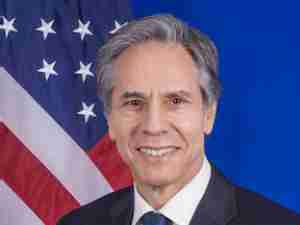Bribery and bureaucracy seen as winners if WTO deal dies
By: Reuters | Nov 27 2013 at 04:05 PM | International Trade
Barring a last-minute deal by ministers next week, the latest round of world trade talks look set to fail, but unlike past liberalization battles, few people are cheering.
The World Trade Organization's "trade facilitation" proposal - aimed at simplifying customs procedures - was meant to be something no country could seriously object to, except perhaps petty bureaucrats and corrupt border guards.
And although many developing countries wanted time and money to help them adjust, nobody was arguing wholesale against the reform, unlike in previous talks where there was opposition in many countries to policies that would have cut farm subsidies or increased the outsourcing of jobs.
The trade facilitation proposal aimed to force all 159 WTO members to make their customs procedures public and predictable, ensure quicker passage for goods in transit and make sure the fees for crossing borders were reasonable.
Importers and exporters would be able to do much more paperwork in advance and online, and complete it in one go, without having to get stamps from consulates or worry about crossing endless checkpoints while transiting third countries.
Beneficiaries of the deal would range from women carrying goods across African borders to container shipping giants such as A.P. Moller-Maersk and express parcel firms such as DHL, FedEx and UPS.
"The trade facilitation deal is notable in that its impacts will be felt across the board, without favouring any specific industries or sectors," Victor Fung, former chairman of global exporter Li & Fung Ltd and honorary chairman of the International Chamber of Commerce, said in emailed comments.
"All businesses, whether importing or exporting goods, will feel the benefits of harmonized customs procedures and standards, and more transparency in the process," Fung said.
Colossal Missed Opportunity
WTO chief Roberto Azevedo said on Tuesday that negotiators in Geneva had failed to finalise the deal, leaving trade facilitation on ice - and dead unless trade ministers can rescue it with a surprise agreement at a meeting in Bali next week.
"It would be a colossal missed opportunity if we fail to conclude this historic agreement. We urge WTO members to finish this deal now," said Michael Ducker, president of the international division at FedEx.
Jan Hoffmann, chief of trade facilitation at the U.N. agency UNCTAD, said even the poorest countries should be able to put the necessary policies in place within five years, and stood to benefit even more than developed countries.
Less developed countries tend to rely more on import duties for state revenues, so more trade means more revenues.
"We say to them: we don't mind if you want to increase the tariff, but please don't make the poor trader fill out a fifth piece of paper, because then you will have less trade," Hoffmann said.
With cooperation between WTO countries, customs would also prevent traders under-declaring the value of their goods, a common trick to offset high tariffs in developing countries.
"The main concern for customs is not the guns, drugs and the weapons of mass destruction, it's valuation," Hoffmann said.
The losers from the reform would include people whose roles might become defunct or who extract bribes for letting traders avoid burdensome customs checks.
Hoffmann said it was "perfectly doable" and would not affect huge numbers of people.
"You may need to offer them alternative employment. You tell them: rather than adding stamps and papers that are not necessary you can provide information and help facilitating trade. And you have better quality jobs." (Reuters)








